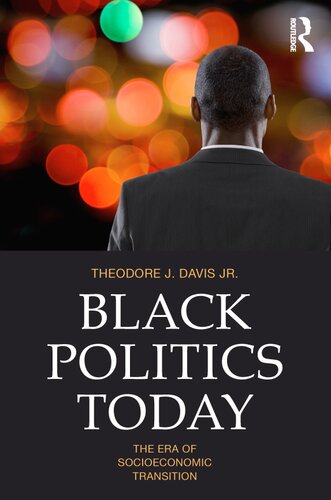

Most ebook files are in PDF format, so you can easily read them using various software such as Foxit Reader or directly on the Google Chrome browser.
Some ebook files are released by publishers in other formats such as .awz, .mobi, .epub, .fb2, etc. You may need to install specific software to read these formats on mobile/PC, such as Calibre.
Please read the tutorial at this link: https://ebookbell.com/faq
We offer FREE conversion to the popular formats you request; however, this may take some time. Therefore, right after payment, please email us, and we will try to provide the service as quickly as possible.
For some exceptional file formats or broken links (if any), please refrain from opening any disputes. Instead, email us first, and we will try to assist within a maximum of 6 hours.
EbookBell Team

4.3
78 reviewsThe late 1980s ushered in a new era of black politics, the socioeconomic transition era. Coming on the heels of the protest era and politics era, the current stage is characterized by the emergence of a new black middle class that came of age after the Civil Rights struggle. Although class still isn’t a strong factor in the external politics of the black community, it is increasingly a wedge issue in the community’s internal politics. Black politics today is increasingly less about the interest of the larger group and more about the interest of smaller subgroups within the community.
Theodore J. Davis Jr. argues that the greatest threat to the social and political cohesiveness of the so-called black community may be the rise of a socially and economically privileged group among the ranks of black America. This rift has affected blacks’ ability to organize effectively and influence politics. Davis traces the changes in economic status, public opinion, political power and participation, and leadership over three generations of black politics. The result is an insightful analysis of black politics today.